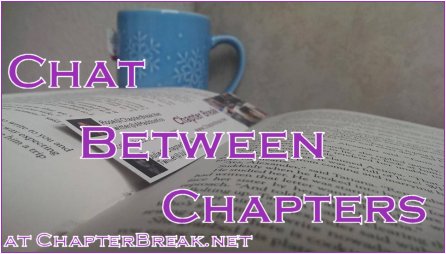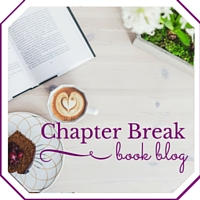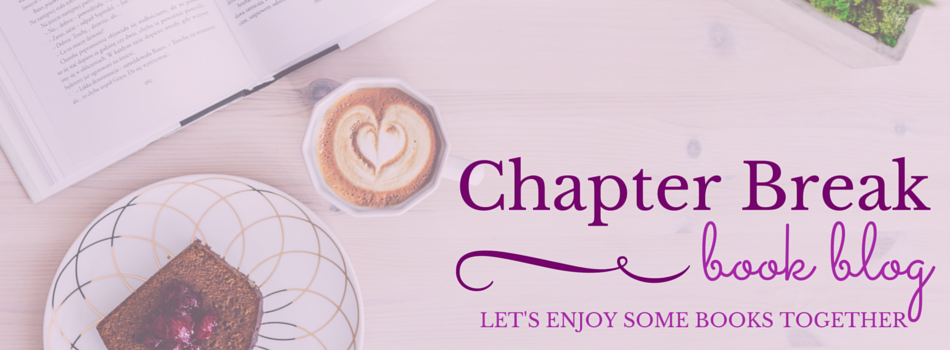
Have you ever thought of the novel as having an owner? Who owns the novel? Which is more important: the author’s intent or the reader’s interpretation?
![]() Julie:
Julie:
I think once the author writes the novel and releases it into the wild, the novel is also owned by everyone who reads it. I remember all the essays we had to write in high school about our interpretations of all these great novels. Yes, the author’s intent was discussed by the teacher, if known, but otherwise we discussed our own thoughts and opinions on the work and how it related to the times and present day. So we took ownership of these novels as we thought through our analysis. The same applies to novels I now read for pleasure. I take the book I just read and form my own opinion about it – on the characters, the events, and the overall story. I might not have the same experience as someone else reading the same book, and that is what makes my reading of the novel my own.
![]() Rose:
Rose:
My guess is that many people consider the author the owner of the novel. A good case can even be made for the publisher being the owner of a novel. That aside, I believe the that true ownership of the novel is given to the readers. A book is never complete until someone has read it. I think that there are a million and one ways to read a novel. Your experience might be quite different from my experience despite the fact that we read the exact same book. Sometimes I read a book and feel one way and then read the same book years later only to discover my interpretation has completely changed. In high school I used to get so incredibly frustrated with the teachers telling me that my interpretation is wrong. I can understand the need to study the critical analysis of a given novel, but to tell a student that his or her interpretation is WRONG is ludicrous. I also dislike the notion of author privilege. I mean, sure perhaps they meant for the book to mean one thing, but they cannot control how the world received it. My take is that once an author has “released” a book into the wild… it is no longer completely theirs. The reader now holds ownership of that novel. What do you think? Who really owns the novel? On a side note, I get frustrated when I buy a digital copy or audio book and cannot share it. I mean, I purchased it, why can’t I loan it to a good friend? Do I not truly “own” digital copies? <sigh> Alas, I suppose that is a topic for another day…
Note: Some posts may contain affiliate links. Should you choose to purchase a product, we will receive a small commission for the sale at no additional cost to you. Chapter Break is a participant in the Amazon Services LLC Associates Program, an affiliate advertising program designed to provide a means for sites to earn advertising fees by advertising and linking to Amazon.com.



When I first read the question, I was totally thinking about the loaning ebooks issue. I hate that I don’t really own the ebooks I buy! So I guess that probably answers the question that I feel the reader should own the books they have purchased! I like what both of you had to say as far as intellectual ownership as well. Good question! I always appreciate your contributions to Booknificent Thursday at Mommynificent.com!
Tina
Tina at Mommynificent recently posted…Ten Thankful Turkeys by Angela Muse: $50 Book Blast Giveaway
[…] week, my favorite post was this thoughtful post from Chapter Break about who owns the story and characters once a book is published. Is it the author or is it the reader? Make sure to visit the post and share your […]
It seems to me that the ownership of the novel (in a metaphorical sense) passes from the author to the reader upon reading. If an author wants to keep ownership, they shouldn’t publish it. I think if, as readers, we didn’t feel some kind of ownership in a book, we wouldn’t care about it enough to finish reading it, or to write about it in our book blogs.
The whole thing about a “right” or “wrong” interpretation bothers me too, especially for middle and high school students. By college we’re all (usually) confident enough to contradict a teacher, but before then I agree it’s wrong to invalidate a student’s opinion. I remember a class in college where we studied novels like Ulysses (James Joyce), which was incomprehensible to me. But my professor seemed to find something beautiful in it. I can’t possibly see that the things he saw were what Joyce intended, but that’s the beauty of literature. Always open to interpretation.
I’d love to see a discussion on ownership in a more physical sense, like Rose mentions. I’ve never understood the whole digital thing. It does seem like we don’t truly “own” digital copies.
Leila @ LeilaReads recently posted…BookBlogWriMo – I’ve Finally Lost It
I like how you said that – if the author wants to keep full ownership they shouldn’t publish the book. Really cool point.
[…] Chapter Break had another great Chat Between Chapters this week – “Have you ever thought of the novel as having an owner?” […]
I totally agree. While the publisher and the author may own the rights, the readers own the interpretation. The reader is free to interrupt anything whether the author intended it to mean that or not. This is not English class when there’s a right or wrong answer to the author’s purpose. Unless the author specifically states, in the text, how one thing should be interrupted, the readers own the right to take anything and take something different away from it. Great discussion!
Emz Chang recently posted…YA in Real Life – Diversity… Take 1
Exactly, this isn’t school where we’re told what the expected interpretation should be. But even then, students often times have their own ideas of what the text means. Thanks for stopping by 🙂
I would tend to agree that the book becomes part the reader’s after the release. For example, I’m pretty sure Harry Potter was supposed to die, but fans would have revolted, so JKR had to adjust the ending to make it happier! She knew she didn’t entirely own Harry at that point. 🙂 Thanks for linking to Quote Me Thursday!
Brenda @DailyMayo recently posted…Quote Me Thursday: 7 Classic Scary Stories Written by Women You Can Read Right Now
Well, I hope JKR wrote the book she felt she needed to write, not just because the fans would have went mad haha.
Books are the creation of authors, so I think they have ultimate ownership 🙂 Interesting to think about though!
Finley Jayne recently posted…Interupting My Regularly Scheduled Halloween Festivities to Address the Kathleen Hale Situation
That is definitely a valid point, they did create the work. I think everyone owns a piece of it when they read the book 🙂
I hadn’t really ever thought about ownership of a novel but I have to agree with you both that once the book is released, it belongs to the reader. Not the ideas contained but how we perceive them. You’re both right in that everyone will have a different experience when they read a book – sometimes the same person will have a different experience when they re-read. We all have different life experiences that shape how a book affects us. And this, in my opinion, is one of the greatest things about literature…how a book can give everyone a unique experience. Rose, I’m sorry that you had teachers tell you your interpretation was wrong. That’s awful. I was one of those students who always seemed to see something that no one else did but I was never told I was wrong. My teachers inevitably said something along the lines of “Hmm, I never thought about it that way…but you could be right.” My oldest daughter and I giggle because her teachers have been saying the same thing to her.
Great chat, girls!
Bookworm Brandee recently posted…**OctobeRec Fest Review #3 ~ Kissed by a Dark Prince ~ Felicity Heaton**
YES! Everyone having their own experience when they read a book is one of the best things about literature. Glad you brought that up 🙂
That is sweet about your daughter getting told the same thing you were as child. I wish I had teachers who would have sometimes validated my interpretations. But hey, it is okay, I guess. I just made me a stronger debater. I was forced to always back up my opinion with evidence from the text, so there, take that mean teacher! lol
When I first saw the title of this post I was like the author/publisher for sure, but after reading you gals’ thoughts you raise some good points. This is why I always hated ‘readers guides’ in school; who are you to tell me how I should interpret something?? And, I feel your pain about digital copies, Rose.
Carmel @ Rabid Reads recently posted…Tour Stop, Giveaways and Early Audiobook Review: Seventh Grave and No Body by Darynda Jones â Please VOTE!
Ooh I like the point you made about being told how to interpret something. Sometimes our teachers would tell us how something should be interpreted, but other times they asked us for our own interpretation, and that was better.
Hi girls! You have been nominated for the Sisterhood of the World Bloggers Award! Congrats 🙂 Here.
Kei recently posted…Sisterhood of the World Bloggers Award
I hadn’t given it much thought I guess. I mean, on one hand it is the authors intellectual property – but I feel that has more to do with plagarism than anything. I also think its wrong when fans get angry – and I mean death threats, hate mail, etc… I’m not talking about bad reviews – when an author develops a story/character in a way they don’t like. In that sense, its the author’s story and world, they can do what they want. But in terms of interpretation, that’s entirely up to whoever is reading it. Just because the author has one way doesn’t mean its the only way (so I believe in reader-response theory I guess). Oh and yeah, I so have issues with not being able to lend eBooks or audio books. I paid for them, I should be able to share them! Great post!
Berls @ Fantasy is More Fun recently posted…Dewey’s 24 Hour #ReadAThon 2014 Wrap Up!
Ooh I’m with you that the copyright/plagiarism is definitely a separate issue, as well as crazed fans who go overboard.
Wow, these are great questions! As an English major I could come at this one from so many different angles. Ultimately the public/readership owns the book. This is quite apparent when a book is made into a visual media pieces like a movie, TV show or mini-series. Rabid fans getting bent out of shape because of something that was changed…watch out!
I think it really becomes the reader’s interpretation of the author’s intent. Unless we know the author personally or an interview is given, the reader will only be able to interpret what the author’s intention was for the novel. And that all comes down to if the reader wants to read that deeply.
Terri M.
Second Run Reviews
Terri M. recently posted…Scenic Sundays #07: Remarkable Things and John Green
I definitely agree with you that the reader owns the book. We each can have our own takeaways from what we’ve read.
Here’s an interesting blog post I stumbled upon tonight. A new author letting her book out into the world…
http://taratolly.com/1/post/2014/10/what-if-they-dont-like-it.html
Terri M. recently posted…That’s What He Said: Butterman (Time) Travel, Inc. by P.K. Hrezo
I like when the author acknowledges that the book belongs to the readers. That’s an awesome post.